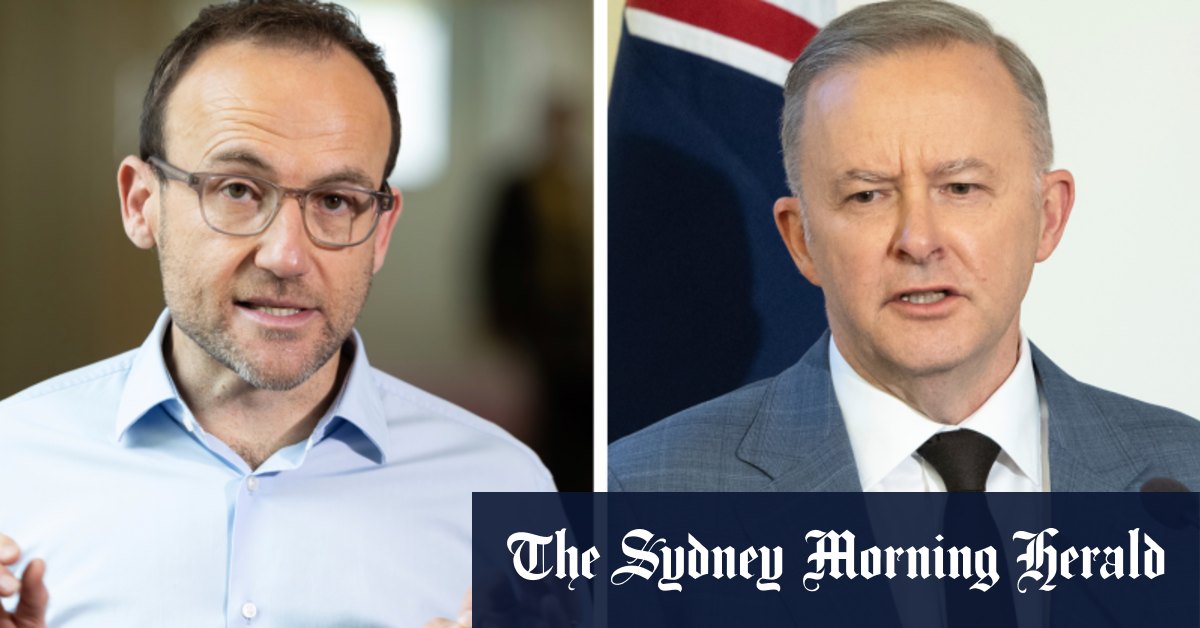“The targets set a floor on Australia’s emissions reduction ambition, not a ceiling,” said the explanatory memorandum for the bill introduced into the lower house last week.
“There is nothing in this bill that would prevent these targets being surpassed or achieved early.”
The bill also requires the federal government’s Climate Change Authority to advise on the targets and publish its findings.
“Finally, there will be periodic independent reviews of how this bill is operating, with the first
such review to take place within five years, and thereafter every 10 years,” the memorandum said.
Bandt said last week the Australian people wanted the Greens and Labor to work together and the Greens were “up for that” in the talks on the climate bill.
“We will continue these negotiations in good faith to see if we can reach a position where we can pass legislation that allows us to start taking climate action because that’s what people want,” he said.
Greens NSW senator Mehreen Faruqi criticized the Labor target ahead of the party room meeting to decide the Greens’ position.
“We know that 43 per cent, obviously, is not enough to deal with the crisis we are facing,” Faruqi told the ABC on Tuesday afternoon.
“We have been able to get the Labor government to move and to rewrite parts of that bill.”
loading
Faruqi said the negotiations were “ongoing” and Labor had already agreed the target could be increased over time but flagged the Greens would also put amendments to phase out coal and gas, a call Labor has rejected.
A key point of contention is the demand from the Greens for changes to environmental approvals to insert a “climate trigger” into federal law so authorities including the federal environment minister would have to consider the impact of a project on carbon emissions before deciding whether to mine or major infrastructure should proceed.
“The government has not said no to a climate trigger,” she said.
“It is really important that we enshrine this in law so that it forces corporations and big mine developers to be honest about the pollution they are causing, and it forces the minister to consider the assessment of climate emissions in terms of assessing developments.
loading
“I mean, it does not make sense to not do that in such a climate-constrained world.”
Dutton gained support in the Coalition party room on Tuesday to vote against the government bill and launch a process to decide on a new climate policy to update the 2030 target of a 26 to 28 per cent emissions cut, set when Tony Abbott was prime minister.
Liberals including Bridget Archer, Andrew Bragg and Warren Entsch have signaled support for deeper cuts but did not tell the party room meeting they reserved their right to cross the floor.
Several Liberals said it was more important to focus on a more ambitious Coalition policy rather than the government bill, given Bowen had said he could go ahead with his policies even if the bill were defeated.
“Chris Bowen made it clear Labor don’t need the legislation to implement their emission reduction policies,” said Liberal MP James Stevens, the member for Sturt in South Australia, after the meeting.
“I’m focused on working with the Coalition team on the emission reduction targets we take to the next election for 2030 and 2035.”
Cut through the noise of federal politics with news, views and expert analysis from Jacqueline Maley. Subscribers can sign up to our weekly Inside Politics newsletter here.
